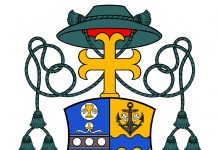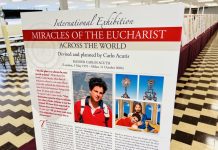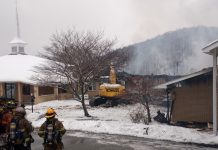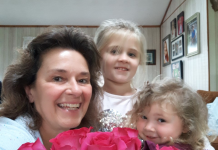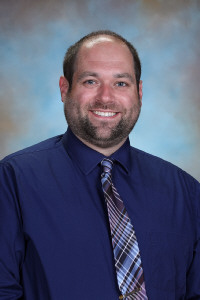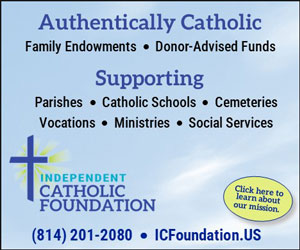Column by Jonathan Nagy
“The legacy you leave is the life you lead.” – Unknown author
Lately, I have spent a good amount of time thinking about that quote. I was asked recently what I eventually want my legacy to be. While the answer to that question is very deep and personal, the evaluation of ones life and projected future is an exercise which serves as a means of self-reflection. The textbook definition of legacy is, ‘the long-lasting impact of particular events, actions, etc. that took place in the past, or of a person’s life.’ The actions we make today will impact the future, just as the actions performed by those who came before us shape our present.
As a historian by trade, I often find myself “dwelling in the past,” as many would say. Occurrences individuals may perceive as simple actions can impact generations, both good and bad. Thinking about life-changing events that we feel happened long ago, but were actually more recent that we perceive, can be overwhelming. From the founding pastor of Saint Michael’s parish in Loretto, Father Demetrius Gallitzin, to the current pastor, Father John Byrnes, there have only been 18 pastors. It is truly astounding to think the line of priests in Loretto is so short. Additionally, our country next year will celebrate its 250th birthday, which is on the young side in terms of nations, but boasts the longest running government in the world. Another historical time fact that is truly amazing is that we are only around 80 generations since the time of Jesus Christ. 2000 years may seem like an eternity to us, but breaking it down to 80 steps makes it seem not that long ago.
Legacy and time were as important in Biblical times as they are now. The 5th book of Genesis details the descendants of Adam. The 1st and 2nd Books of Kings in the Old Testament analyze the leaders of Israel and Judah. Saint Matthew began his Gospel with meticulous analysis of the genealogy of Jesus Christ. These were all written to make a point – to link people together.
Often, I am having a conversation with my mother, and she makes reference to someone. I will say, “I don’t know who you are talking about.” She continues, “Oh, yes you do. They are so and so’s cousin (uncle/brother/best friend) who knew your great aunt who visited their second cousin…” We have all had conversations like this with family and friends! The point, just like the Bible genealogy, is to show our connection to others. We are all on this planet, and all connected in one way or another.
Several summers ago, I spent a good amount of time researching my own family genealogy as well as participating in a “23andme” analysis. I was amazed to find so many astounding connections in my family tree, including the personal attaché to William the Conqueror of Normandy, a Hungarian freedom fighter, and an adoptive relationship with our very own, Father Gallitzin. Looking at the research that I had conducted, I was overcome with emotion thinking, “All of these people had to be where they were at the time they were, for me to be where I am today.” A second thought that hit me was, “What legacy did they intend to leave?” A third thought was, “How do I chart my own legacy?” These are all good, reflective questions that can provide all of us with valuable insight into what we are doing with our lives and how impactful our actions will be for the future.
Not all family legacies are positive. Families have had tragic things happen to them and atrocious acts committed to them and by them, some of which subsequent generations suffer from greatly, knowingly and unknowingly. We need to pray for reparation for those past transgressions, both for ourselves and our ancestors. There is a wonderful Prayer for Healing the Family Tree, by Father John Hampsch, CMF. The prayer asks for our healing from the unwanted tendencies, behavior patterns, and defects that have been passed down. The prayer also leads us to forgive those, living and dead, in our family trees, both those we knew and those we did not know, for what they have done. The prayer concludes by asking God to lead us forward in positively impacting future generations with our devout love of Him and His Son, Jesus Christ. I first came to know this prayer several years ago during a Divine Mercy Holy Hour. This prayer can bring much comfort and peace, as well as help us refocus to change the course of history and leave a lasting, impactful legacy. I encourage everyone to seek out this prayer and read it slowly and reflect upon the words. I pray that it brings you peace as it has brought to me.
The Divine Mercy Chaplet itself is also a wonderful, powerful, healing prayer. In 1935, Saint Faustina saw a vision of an angel sent by God to punish a certain city. She began to pray for mercy, but her prayers were powerless. Suddenly, she saw the Holy Trinity and felt the power of Jesus’ grace within her. At the same time, she found herself pleading with God for mercy with these words: Eternal Father, I offer You the Body and Blood, Soul and Divinity of Your dearly beloved Son, Our Lord Jesus Christ, in atonement for our sins and those of the whole world; for the sake of His sorrowful Passion, have mercy on us. In her famous Diary, she continued to add and refine the prayer as given to her by Jesus Christ. It is tradition to recite the entire Chaplet during the 3 o’clock hour, but it can be said at any time. I have also found this prayer to be so helpful in my life. Saint Faustina cemented her legacy by listening to the word of God and providing it to all the world.
Psalm 90:4 states, ”For a thousand years in Your sight are like yesterday when it passes by, or like a watch in the night.” We find ourselves fretting and preparing for events and times in our lives that end up being a tiny blip on our life journeys and even quicker in the time of God, who is beyond time itself. We can become overwhelmed thinking about how small and insignificant we are in the scope of God and all eternity, but those thoughts are not true. As we were each made in the image and likeness of God, and as He calls us each by name, and has known us since before we were formed in the womb, we are truly special to Him. What we do on earth is also truly special to Him.
Above everything, God wants nothing but our love and faithfulness. To truly love Him will create a sense of compassion and care for those around us. We are expected to love our neighbors as ourselves. In Matthew 5:43-46, 48, Jesus said, “You have heard that it was said: ‘You shall love your neighbor and hate your enemy.’ But I say to you: Love your enemies and pray for those who persecute you. This will make you children of your heavenly Father. For he causes his sun to rise on evil people as well as on those who are good, and his rain falls on both the righteous and the wicked. If you love only those who love you, what reward will you receive? Therefore, strive to be perfect, just as your heavenly Father is perfect.”
This is the legacy that Jesus wants each of us to leave. We are called to love everyone and do our very best in His Name to care for our fellow man. When we examine the legacies of our faith and historical heroes, they show great determination in what they did to make the world a better place. The impact of their work is still felt by us today, and should serve as a motivating factor for us to leave a lasting legacy for the many generations that will follow us.
So, as I was asked a few weeks ago, I too ask each person reading this, “What do you want your legacy to be?” Take this question with you in prayer to Jesus Christ. Look to the examples of your favorite saints and how they continue to inspire and intercede for us. Reflect upon your actions and how to constantly improve in order to lead ourselves and others home to our Father in Heaven at the end of our time on earth, for each of us only have a finite amount of time to leave a legacy. As Abraham Lincoln once said, “In the end, it’s not the years in your life that count. It’s the life in your years.”
Fill that life with an everlasting legacy of goodness, kindness, and mercy. Celebrate the positive legacies of those who have come before us and forgive those who have done wrong. May God’s Divine Mercy be upon all of us as we leave our legacy on the world!
Jonathan Nagy, M.Ed., is the Principal of Bishop Carroll Catholic High School in Ebensburg and the Music Director at the Basilica of Saint Michael the Archangel in Loretto.


